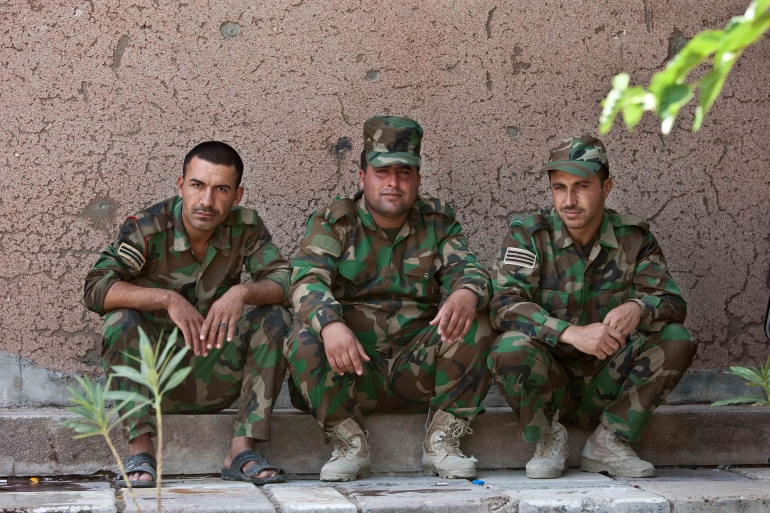
At least 10 people, including three civilians, killed in latest attack on a village in Iraq’s semi-autonomous Kurdistan region.
An attack by ISIL (ISIS) fighters on a village in northern Iraq has caused several fatalities, including of three civilians, according to officials.
In a statement late on Thursday, the security forces of Iraq’s Kurdistan Regional Government (KRG) said ISIL had attacked “several houses in the village of Khidir Jija in Mount Qarachogh”, in Iraq’s Makhmour region.
“Unfortunately, there are martyrs and wounded among civilians,” it added.
Local news outlet Rudaw reported the death toll stood at 10, including seven members of the Kurdish security forces known as the Peshmerga.
In a statement on Friday, KRG President Nechirvan Barzani condemned the “brutal attack”, which killed “three brothers from one family” and wounded “several other civilians”. He also said “a number” of Peshmerga had been killed, while others were wounded “during the operation to hunt terrorists”.
“The attacks by ISIL terrorists require strong reactions and strong military and defence measures in Iraq and the Kurdistan Region to set a permanent limit on their crimes and terrorist acts,” Barzani added, calling for “more efficient cooperation” between the Iraqi army and the Peshmerga, as well as increased support by the international coalition “to fill the security and military gap, particularly in areas between Peshmerga and Iraqi forces”.
ISIL has staged a series of attacks in recent weeks targeting civilians and security forces. Last week, the armed group killed five Peshmerga fighters in Diyala, in an attack that utilised the same tactic of ambushing those who rush to the scene to help wounded fighters.
ISIL took a swath of land in Iraq and Syria in 2014. Following a series of bloody offensives against it, the armed group lost its territorial control and was effectively defeated in 2017.
However, having changed its strategies, ISIL still poses a threat in several provinces in Iraq with hit-and-run attacks, kidnappings and roadside bombs.
Meanwhile, territorial disputes in Diyala province between the semi-autonomous Kurdistan region and Iraq’s federal government, coupled with a lack of coordination between Kurdish forces and their counterparts in Baghdad, have contributed to a security vacuum that has been increasingly exploited by ISIL.
The intensified attacks come at a time when the United States is poised to withdraw all of its combat forces from Iraq by the end of the year, switching all the remaining military personnel to auxiliary positions where they could train and provide intelligence to the Iraqi army.
